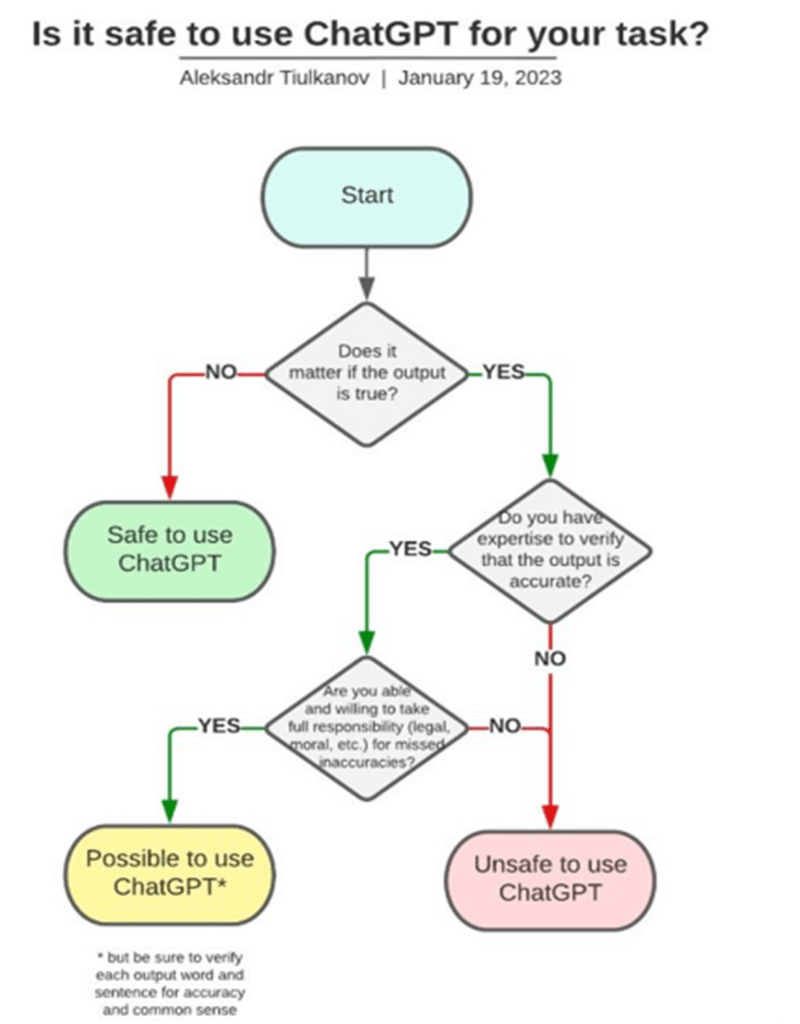AI is powerful. AI is efficient. AI is fast.
But it won’t make you an expert.
It’s like handing a scalpel to a medical student and expecting them to perform flawless surgery. Or giving a Stradivarius violin to a novice and expecting a masterpiece.
AI can assist. AI can enhance. AI can accelerate.
But the core thinking?
The expertise?
The judgment?
That part is still on you.
Where AI Falls Short: The Illusion of Expertise
Want to write a research paper? AI can refine your language, suggest edits, even summarize articles.
But it won’t tell you what question is worth asking.
Want to analyze data? AI can run models, generate plots, and highlight trends.
But it won’t tell you if your study design is flawed.
Want to build an app? AI can generate code, suggest improvements, and fix minor errors.
But it won’t architect the logic behind it.
AI can provide tools. But tools without expertise? That’s a recipe for mediocrity.
The problem isn’t that AI gives you wrong answers.
The problem is, without expertise, you won’t even know which questions to ask
And more importantly which answers to question.
5 Ways to Make AI Work for You—Not Against You
If you don’t want to be just another AI-dependent amateur, you need adopt a different mindset.
Here’s how you turn AI into an ally, not a crutch.
1. Learn the Basics of Research Before Asking AI for Help
AI can structure a paper. AI can refine your writing.
But you must define the research question, study design, and hypothesis.
Imagine you’re designing a clinical study. Should you use a case-control study? A cohort study? A pragmatic trial?
AI won’t decide that for you.
But if you understand research methods, AI can make the process smoother.
❌ AI-Dependent Amateur: Asks AI to generate a study design without understanding the differences.
✅ AI-Powered Expert: Knows the pros and cons of each design and uses AI to brainstorm and refine the execution.
The expert uses AI to sharpen their skills. The amateur uses AI to compensate for what they don’t know.
And that’s a dangerous game.

2. Critically Review the Literature—Don’t Just Accept AI Summaries
AI can summarize. AI can extract key points. AI can even compare papers.
But it won’t tell you what’s weak, what’s strong, or what’s missing.
Let’s say you’re reviewing a meta-analysis. AI might summarize it by saying:
“This study found that Drug X reduces mortality by 30%.”
Great. But what AI won’t tell you is:
- Did the researchers adjust for confounders?
- Was the sample size sufficient?
- Could there be selection bias?
A true expert knows to ask these questions. An amateur? They take AI’s summary at face value.
And that’s how bad science gets published.
❌ AI-Dependent Amateur: Accepts AI’s summary at face value.
✅ AI-Powered Expert: Reads between the lines, asks hard questions, and spots the gaps.
3. Make a Strong Scientific Argument—AI Can’t Do the Thinking for You
AI can generate text. AI can suggest logical flow.
But you must connect ideas in a way that persuades and convinces.
Think of a discussion section in a paper. AI might summarize findings, but will it frame them in a way that matters? How does this research fit into the bigger picture?
- What are the real-world implications?
- What should come next?
The expert knows these are the critical questions. The amateur doesn’t even know they need to be asked.
❌ AI-Dependent Amateur: Lets AI dictate the argument without deeper analysis.
✅ AI-Powered Expert: Shapes the narrative, ensuring it’s meaningful and impactful. Provides own unique perspective to move the field forward.
4. Understand Statistical Methods—Numbers Without Context Are Dangerous
AI can run regressions. AI can generate p-values. AI can visualize data.
But you must decide if the model is appropriate.
Let’s say AI tells you:
“The p-value is 0.04, so it’s significant.”
Okay. But wait—
- Was multiple testing corrected for?
- Was the sample size large enough?
- Are the assumptions of the model valid?
AI won’t catch those things. A trained researcher will.
You may argue that if you ask AI those questions, it could probably provide you with the answers.
Sure, but first, you need to know what questions to ask.
❌ AI-Dependent Amateur: Sees “p < 0.05” and assumes the result is meaningful.
✅ AI-Powered Expert: Understands the nuances of statistical interpretation and asks the right questions.
5. Speak the Language of Experts—So You Can Ask AI the Right Questions
AI can assist. AI can automate. AI can speed things up.
But you must know enough to communicate effectively with experts.
If you’re working with a statistician, you don’t need to be a statistician.
But if you can’t speak their language—effect sizes, confidence intervals, model assumptions—you won’t know what to ask.
And if you don’t ask the right questions, you won’t get the right answers.
❌ AI-Dependent Amateur: Uses AI as a black box and takes results at face value.
✅ AI-Powered Expert: Uses AI strategically but engages critically with human experts.
The more you understand, the more valuable AI becomes.
The less you understand, the more dangerous it gets.
The Real AI Divide: Thinking for You vs. Helping You Think Better
The real divide isn’t between those who use AI and those who don’t.
It’s between those who let AI think for them and those who use AI to think better.
An AI-generated paper with a weak premise is still a weak paper.
An AI-generated model with a flawed design is still a flawed study.
An AI-generated answer to the wrong question is still the wrong answer.
If you don’t know what you don’t know, AI won’t save you.
Master the fundamentals.
Then, let AI amplify—not replace—your expertise.
